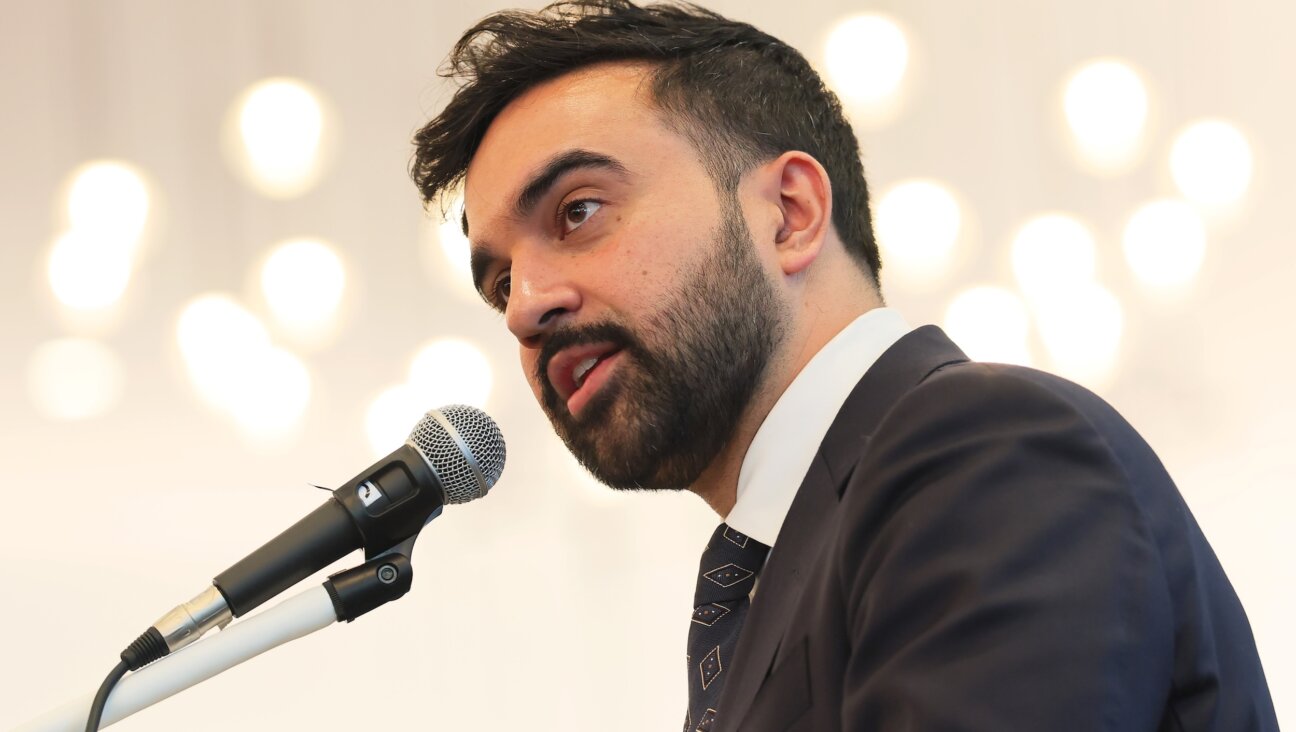Condition Aid to Palestinians on Accountability
The recent peace summit in Annapolis, Md., was more a reflection of the global community’s earnest desire to solve the Israeli-Palestinian conflict than of tangible progress in the peace process.
Support for the Palestinian Authority’s request for $5.6 billon at the subsequent Paris donor conference, as well as forthcoming congressional approval of President Bush’s request for $218 million in assistance, including $150 million in direct aid to the P.A., clearly evidences Washington’s perception that the this may be (another) last opportunity for a two-state solution. However, recent history shows that good intentions and financial assistance will not alone make peace.
President Clinton proffered a similar argument following the Oslo accords and the establishment of the P.A. in 1994. The massive injection of foreign assistance failed to improve the quality of life for the Palestinian people while it enabled, to a significant degree, a dysfunctional, corrupt public administration that quickly lost the confidence of the very constituents it was set up to govern.
And yet despite the breakdown of the Oslo process and the outbreak of the second intifada, the donor money continued to flow. Political correctness and fear of a massive humanitarian catastrophe pushed aside the objective of building legitimate democratic institutions in favor of keeping the money flowing at all costs. The unofficial policy of the donor community then, as now, was: “We will get it right in the future, following the establishment of a Palestinian state.”
In 2005, the P.A. ranked 108th among 159 countries in the Transparency International Corruption Perception Index, alongside Libya. The unaccountable foreign assistance programs only served to enable the dysfunctional local administration.
The perception of rampant cronyism, corruption, ineffectual donor programs and opaque top-down decision-making, coupled with internal and external conflicts and setbacks in the peace process, led to the Hamas victory in the January 2006 elections and then to the subsequent Hamas takeover in Gaza. The international sanctions imposed following the Hamas electoral victory further exacerbated the situation.
Since taking power Hamas has largely undone the anti-corruption reforms and higher levels of transparency implemented from 2001 to 2004 by then-finance minister Salam Fayyad. Parallel financing systems, corrupt practices and disregard for public benefit have again became the norm.
In order to avoid a worse humanitarian catastrophe, international donors have resorted to gimmicks in the past several years to keep the funds flowing. The Temporary International Mechanism was created by the European Community in June 2006 in an effort to relieve the worsening socioeconomic crisis. And the United States Agency for International Development, according to the agency’s internal audit, largely ignored its own mission-vetting procedures, stating, “[W]ithout additional controls, the mission could inadvertently provide support to entities or individuals associated with terrorism.”
Such well-intentioned programs, while critical to avoiding a larger humanitarian crisis, further inhibited effective institution building while alienating the very population they were meant to support. Not so ironically, the Arab states, citing the likelihood of misappropriation of funds, have historically been reticent to provide direct assistance and failed to meet their own pledges to the P.A.
The formation this past June of an emergency Fatah-led government and renewed dialogue between Israel and the P.A. once again raises an opportunity to build the necessary Palestinian institutions in preparation for a negotiated two-state solution. Massive international assistance remains critical to bolstering the new government led by President Mahmoud Abbas and Fayyad, who now serves as prime minister.
The new Palestinian leadership has pledged to put the aid toward building durable, transparent and effective institutions for the benefit of the Palestinian people. But as the experience of the Oslo years has made clear, disregarding accepted standards of accountability and transparency in preference for political expediency will result in more of the same.
Constructive conditions on foreign assistance need not be seen by the donor community as unnecessary interference in Palestinian affairs. In fact, such conditions can actually work to empower the moderate Palestinian leadership and the nascent peace process.
In exchange for direct assistance, the United States and other donors should require the P.A. to take a number of steps.
First, eliminate all parallel financing mechanisms, allow an outside audit of the single treasury account reestablished this year by Fayyad, and concentrate funds on projects promoting general quality of life rather than lining officials’ pockets.
Second, establish a transparent civil service roster and payroll, including all security-related personnel, and undertake disarmament of armed groups outside the federal security services.
Third, document and publish a comprehensive donor contribution database, make contracts and procurement activity open to public scrutiny, and ensure that all beneficiaries are compliant with existing anti-terrorism financing — without exceptions.
Fourth, wealthy Arab oil states should be pushed to equally share the financial burden and to make good on past pledges. Such tangible regional support remains fundamental to the P.A.’s viability and legitimacy.
And finally, incitement to violence must stop, full scale. Endorsement of such messages in the Palestinian Broadcast Agency and by the P.A. leadership, as well as inflammatory educational materials, will continue to negate any diplomatic gains.
Actual implementation of these reforms will no doubt be painful, far more so than a continuation of the same old lip service. To justify implementation of such intrusive conditions to their disillusioned Palestinian constituency, Abbas and Fayyad need to receive tangible assurances that Israel will no longer withhold Palestinian tax remittances as political leverage.
In return for the security reforms, Israel should move to continually deescalate offensive military actions while working to shut down unnecessary and unmanned check points and restrictions of movement of Palestinian people and goods. Remaining border checkpoints should be operated based upon negotiated protocols rather than unilateral restrictions.
The failure of so many diplomatic peace initiatives and the Oslo process provide many lessons. One such instruction is that good intentions and money alone will not guarantee peace.
Placing constructive conditions on international assistance can help empower reformers rather than serve as externally constructed hindrances. Abbas, Fayyad and the moderate Palestinian base rely on international assistance not only to meet budget requirements, but also to provide guidelines and parameters in building the foundation for a democratic, viable Palestinian state at peace with Israel.
James Prince, president of the Democracy Council, is a former consultant to the Palestinian Finance Ministry.













